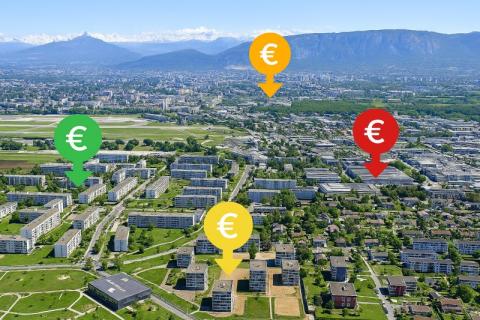Kick-off this Friday for the Forbes research project, which we’ll be working on over the next five years!
Forbes ("Funding Regionalized Tools for Biodiversity Management by Businesses") is a project at the crossroads of ecology, land-use planning, and finance.
Its goal is to provide effective tools and methods to help both public and private actors involved in land-use planning to better integrate biodiversity considerations into their projects, at a regional scale:
▪️ Local authorities, to guide their funding decisions in line with their ecological ambitions;
▪️ Businesses, to enable them to assess their contribution to the preservation of species and ecosystems.
Forbes comes at a time when non-financial reporting obligations for businesses are being strengthened, particularly with the implementation of the European CSRD directive (Corporate Sustainability Reporting Directive).
The project’s ultimate goal is to design and pilot an economic model and a public-private biodiversity management system, through a hybrid financing mechanism inspired by the model of the Water Agencies.
To achieve this, the project will begin with a three-year research phase, focused on building this management and financing system and developing associated ecological indicators.
This will be followed by a two-year experimentation phase, to test the mechanism in real-world conditions and improve it where necessary. This phase will be conducted with both local governments and infrastructure operators and aims to result in a stable, robust, and operational system.
The Forbes project is a winner of the "Infrastructure Challenges in Territories Amid Global Change and Biodiversity Decline" call for projects, supported by the ITTECOP program (Infrastructures, Territories, Transport, Energy, Ecosystems, and Landscapes).
Led by TerrOïko, it brings together partners including the ECO-MED consulting firm, UVSQ (Université de Versailles Saint-Quentin-en-Yvelines), the Sustainable Infrastructure Foundation (SOURCE), and advisory agencies Supplément d'âme and ERM (Environmental Resources Management).
It will also support the upcoming PhD research of Reina NAAMAN, supervised by Laurent DALMAS, focused on integrating biodiversity issues into infrastructure project financing and non-financial reporting.
The project will also benefit from the participation of Région Occitanie / Pyrénées-Méditerranée, Nîmes Métropole, SNCF Réseau, SNCF Group, Mirova, RTE (Electricity Transmission Network), and the CGDD (General Commission for Sustainable Development).
Project oversight will be provided by organizations in the Ittecop network, including the FRB (Foundation for Biodiversity Research), EIFER (European Institute for Energy Research), and EDF.
